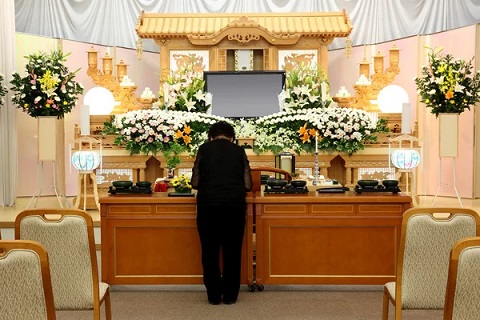Compassionate Buddhist funeral services are solemn ceremonies honouring the deceased’s journey towards enlightenment. It aligns with Buddhist doctrines of compassion, impermanence, and karma. It typically comprises chanting of sutras, meditation, and rituals symbolizing detachment from worldly attachments to help the departed’s spirit transition smoothly.
In Buddhism, honouring loved ones, especially their ancestors, is essential. It fosters appreciation for their contributions to our lives and karma. The Life Celebrant, through rituals and ceremonies, Buddhists express gratitude and cultivate a deeper connection with their loved ones, furthering their spiritual growth.
Core Principles of Buddhist Funeral Services
Expression of Compassion and Respect
Compassion and respect are indispensable virtues reflecting one’s benevolence and dignity. The expression of these virtues harmonizes relationships, reflecting empathy, understanding, and kindness. It fosters a supportive environment where individuals feel valued, appreciated, and cherished regardless of their shortcomings.
Acknowledgment of Impermanence and Death
The acknowledgement of impermanence and death is a profound realization that life is fleeting. Understanding this impermanence cultivates an appreciation for present moments and enlightens us about the inevitability of change and end. It serves as a reminder to live mindfully and purposefully.
Value of Mindful Mourning and Release
Mindful mourning is valuable as it cultivates acceptance and understanding of loss. It encourages the grieving individual to fully engage with their emotions, promoting healing. Through mindful release, one learns to let go, fostering resilience and personal growth.
Buddhist Funeral Rites and Rituals
Pre-funeral Rituals and Preparation
Pre-funeral rituals and preparations are key to honouring the deceased. They typically include washing and dressing the body, arranging the venue, organizing the funeral speech, and selecting a casket. These traditional practices vary greatly across different cultures and religions.
Buddhist Funeral Ceremony: The Wake
The Buddhist funeral ceremony begins with a wake, where friends and family gather to pay respects. Rituals include chanting sutras, burning incense and offerings to the deceased. Buddhists believe these acts help guide the departed soul towards enlightenment.
Funeral Rite: The Cremation
The cremation is a fundamental component of a funeral rite in various cultures. It involves reducing the deceased’s physical remains to ashes, signifying the release of the soul. This process is heavily ritualized, encompassing both spiritual significance and emotional catharsis for the bereaved.
Post-Funeral Rites and Mourning
Post-funeral rites and mourning are important aspects of dealing with loss in many cultures. These practices may include family gatherings, prayer services, or periods of seclusion. Each serves as a symbolic farewell, allowing space for grief and remembrance.
Role of Chanting and Meditation in Buddhist Funerals
Purpose of Chanting in Assisting the Departed Soul
Chanting assists the departed soul in its spiritual journey. It soothes the soul, providing peace and solace. In various cultures, chanting is believed to guide the soul, ensuring safe passage to the afterlife, while also comforting the living.
Significance of Meditation during the Mourning Period
Meditation during the mourning period is significant as it helps cope with loss and grief. It offers solace, inner peace, and mental strength. Moreover, it assists in accepting reality, managing emotional stress and restoring balance in life.
Grief and Bereavement: Coping Mechanisms within Buddhist Teachings
Emotions, Acceptance, and Healing in Buddhism
Emotions, acceptance, and healing form a vital triad in Buddhist philosophy. Buddhism teaches us to mindfully accept our emotions as they are, without judgment. This acceptance initiates the healing process, leading to inner peace and life balance.
Utilizing Meditation and Mindfulness as Coping Strategies
Meditation and mindfulness are powerful coping strategies that foster mental well-being. Regular practice helps in reducing stress and anxiety levels, promoting self-awareness and emotional health. These techniques create a sense of calm, facilitating a more balanced outlook on life.
Conclusion
Understanding Buddhist funeral services is crucial for demonstrating respect and empathy towards Buddhist mourners. It provides insight into their cultural practices, life philosophies and attitudes towards death. This knowledge promotes empathy, cultural competence, and positive interfaith relations.
